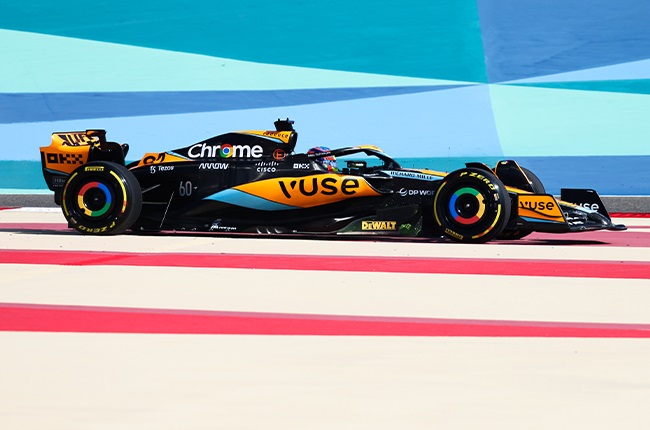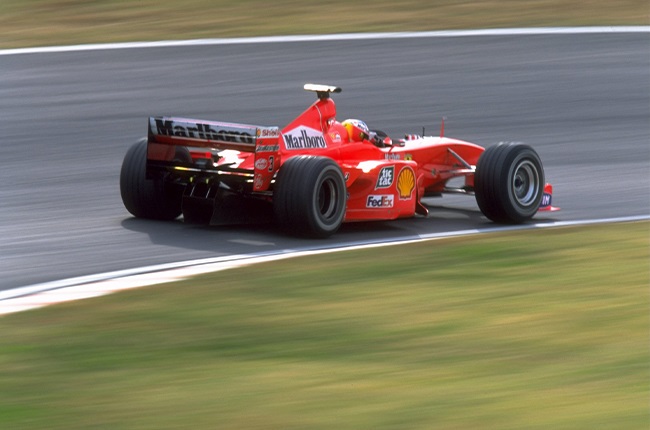Where there’s smoke… Netflix under fire for tobacco advertising in F1 ‘Drive to Survive’ series
- Netflix has come under fire for marketing tobacco or tobacco-related products in its Formula 1 show ‘Drive to Survive’.
- Those campaigning against tobacco say that advertisers have found advertising loopholes, both in Netflix and F1.
- F1 no longer allows teams and cars to feature tobacco branding.
Industry monitors said that Netflix’s popular Formula 1 show, ‘Drive to Survive’, provides tobacco giants with a fast and effective marketing vehicle to swerve past bans on advertising their products.
The behind-the-scenes F1 streaming series has been hugely popular on Netflix, which recently released its fifth season.
But campaigners warn that, beyond boosting the motorsport code’s popularity, the show is also delivering into homes worldwide the branding of cigarette companies that sponsor F1 teams, including in countries where tobacco advertising is banned.
In a fresh report, F1 industry monitor Formula Money and tobacco industry watchdog STOP charged that in just the fourth season of “Drive to Survive”, “a total of 1.1 billion minutes of footage streamed around the world contained tobacco-related content.”
And half of all episodes during that season contained tobacco-related branding in the opening minute, according to the report entitled: “Driving Addiction: F1, Netflix and Cigarette Company Advertising”.
The product branding of Ferrari sponsor Philip Morris International (PMI) and McLaren sponsor British American Tobacco (BAT) has “heavily featured in the series, with extended plotlines following the teams’ drivers,” the report said.
“Research suggests that PMI and BAT are reaching new audiences through the show, including people who don’t otherwise watch F1 races,” it added.
Younger audiences
The report, released on Wednesday, showed that the viewers of “Drive to Survive” were younger than typical F1 audiences. It also suggested it contributed significantly to increasing viewership of F1 races beyond the Netflix series.
“This increase in viewers means more people see the branding F1 sponsors place on the cars and livery,” it said.
“Netflix has a responsibility to not deliver content that is promoting, even if it’s indirectly, cigarette company brands,” Jorge Alday of STOP told AFP.
Netflix did not immediately respond to requests for comment.
A global treaty has called for the elimination of all advertising for tobacco, the use of which the World Health Organisation estimates kills more than eight million people each year.
And the International Automobile Federation (FIA), F1’s governing body, has for two decades recommended against tobacco company sponsorship in the sport.
The tobacco companies have since stopped advertising their traditional cigarette brands with F1 but have, in some cases, continued to push newer alternative products like e-cigarettes.
“They live in this grey area around what is and what isn’t tobacco marketing,” Alday said.
When contacted by AFP, the FIA said it “remains firmly opposed to tobacco advertising and continues to stand by its 2003 recommendations”.
However, it said, “we are not in a position to interfere with the private commercial arrangements between the teams and their sponsors, or broadcast agreements.”
F1 meanwhile insisted that “all advertising is in line with applicable laws.”
Advertising through historic footage
Wednesday’s report found that PMI and BAT spent an estimated $40 million on F1 advertising in 2022.
BAT’s Vuse e-cigarette and Velo nicotine pouch products “were the most prominent brands on the McLaren livery throughout the season,” the report said.
It pointed out that branding for these products appeared at 13 out of 22 races, including at the Mexico City Grand Prix, despite Mexico’s strong advertising restrictions.
PMI, one of the oldest and longest-standing F1 sponsors, scaled back its spending significantly last year.
While it remained a Ferrari partner, its logos and designs no longer appeared on the team’s cars, the report found.
AFP contacted the company’s vice president of international communications, Tommaso di Giovanni, who insisted that the partnership between Netflix and F1 “has nothing to do with us”, insisting that it had discontinued product branding on cars and drivers’ apparel since 2007.
Wednesday’s report meanwhile claimed that the tobacco giant, which has spent nearly $2.4 billion on advertising since it first entered the sport in 1971, continued to draw branding advantage from the Netflix series through historical footage.
Report co-author Caroline Reid of Formula Money stated that a single “minute of historic footage featured five different cigarette brands, including PMI’s Marlboro.”
Source: News24














